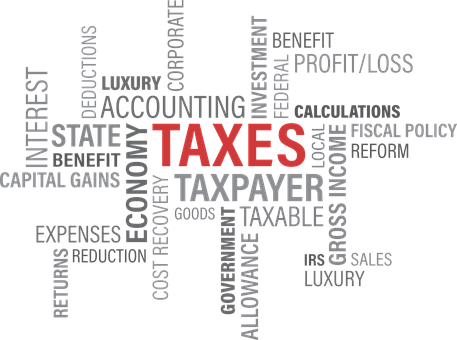Good things never last, bad ones can seem to go on forever. So it is with Guernsey’s politics, including when it comes to the management of the island’s finances.
We have just been presented with a Budget for 2020, and it is to be debated by our Assembly next month. Amid all the useful detail – of which we have plenty, courtesy of our civil service – two particular themes dominate.
First, the mounting losses of the States-owned airline Aurigny – rising from £3.7m in 2018 to a forecast £7.6m this year and a projection next year of £9.6m. The top Policy & Resources Committee admits a coordination failure over air route policy and wants to “develop a coherent government framework” through a review by all those involved. Why wait, many might wonder: the trend has been both evident and predictable, suggesting a lack of backbone in tolerating it – unless next year’s figure is a “kitchen sink” number which won’t be allowed to materialise.
The second is the fact that new and controversial forms of taxation are being sought because, despite much ballyhooed efforts, total public spending is not under control, even as the burden on taxpayers continues to grow. This too is a subject set for future discussion. For an ostensibly sensible leadership with a purportedly disciplined approach to the island’s finances over two assembly terms, it likewise speaks of a lack of initiative in not acting sooner.
Together, both features suggest we have a budget-which-is-not-quite-a-budget. Deputies are clamouring to raise these two matters when they discuss the document, but they may not get very far given P&R’s deferral plans. More’s the pity, because it seems like a can is being kicked down the road. That said, there are plenty of meaty specifics to dive into on both the spending and taxation fronts.
In the spending realm, perhaps the most interesting are:
- The rate of increase is higher than inflation. Committees have proved unable to contain Health and Social Care spending, despite earlier promising efforts, and spending by Home Affairs and by Education continues to overshoot. Spending in 2020 will be significantly worse than the worst-case forecast.
- The demands placed on the health and social security systems are relentless: the number of recipients is growing, so is the number of “essential” services, and most are costing more. No less than 38% of the total amount spent on States service provision is now on social security benefits. Another 21% goes on health and social care. Both amounts are self-evidently sensitive to the ageing of the population.
- Worryingly, a smaller amount than originally intended is being put aside for capital spending, in order to permit more short-term departmental spending and to meet the dirigiste requirement to balance the budget. Essential infrastructure spending will suffer, at a time when the list of vital projects requiring action is lengthening.
In the taxation area, the most controversial aspects are:
- The threat of health taxes and a general sales tax. Details are not spelt out, because they are part of the future agenda, but the health tax would aim to give access to the same drugs UK patients receive, while a GST would resurrect an issue which has been spurned twice in the past thirteen years. Discussion of both just before an election does not represent great timing.
- The relentless imposition of above-inflation increases in indirect taxation. These aim at the usual sin sectors and on all property. Being soft targets, this is not surprising, but the public mood of resignation is at risk of turning into something worse the longer it goes on. Ask any driver.
- Given our narrow tax base, the income tax burden for higher earners continues to increase. The budget document details the extent to which the actual rate they pay exceeds the 20 per cent rate which is commonly advertised as the island’s selling point (and, incidentally, overlooked by “tax haven” critics who think locals pay no tax). Some 25% of earners now pay 69% of income tax.
- The corporate income tax rate continues to shift further away from the zero-10 structure also commonly advertised for the island. This is reaching a limit as more companies in and around the finance sector become obliged to pay 10%. Indeed, it would not be surprising if it was suggested that all Guernsey companies paid 10% on revenues generated in the island. In this context, it was a surprise to learn that any new cannabis-related businesses will be subject to a 20% corporate tax rate – why not treat it like other non-financial businesses (lawyers, accountants, garden-centre companies, spectacle companies) or at least incentivise it?
The following features are also of note:
- The States continues to manage an inordinate number of money pots for different purposes. Although there are no signs of rationalisation, such a move will be recommended to the assembly elected next June. Better late than never, many would say.
- We still suffer a shortage of information about the assets of the States – meaning in particular the portfolio of property assets which is supposed to be undergoing a rationalisation, but meaning also the actual management of the States reserves.
- There remains an absence of detail about the long-term liabilities of the States – both in respect of social security spending given the demographic profile of the island, and the States’ own pension obligations, which must fund the retirement benefits of ever-increasing numbers of civil servants dropping out of the workforce. In this vein, the planned new secondary pension scheme, because it will entail tax reliefs, will compound the States’ budgetary complications.
As if all this isn’t enough, this must be one of the few governments which doesn’t put its budget into a broader macro-economic context – meaning the size of the economy, the likelihood of it growing, and the prospects for inflation and employment, but also the vital capital spending required on infrastructure over the next decade or two to keep the island functioning properly.
Our leaders love to talk about taxation being 21% of GDP vs 26% in Jersey and 38% in the UK, spending being 26% and the permissible budget deficit being 3%. The fact is, we have only recently identified an acceptable measure for GDP, we take too long to publish the figure, and have only recently advertised for an official statistician to help compute it. In any case it is not a reliable figure for a service-based export-oriented economy like Guernsey, and it is no surprise that a 21%-level doesn’t go as far as most modern politicians want.
It is often said that the island is in a budgetary fix – and especially in the Aurigny quagmire – because of its system of government. Some fondly hope that island wide voting in the election next year will promote more decisive actions because politicians will have a wider electoral base.
The logic in such arguments is not self-evident. Yes, the current system of government, which acquired its latest incarnation only in 2016, does not encourage decisive executive action. But in a jurisdiction the size of Guernsey, it is less the structure that matters than the deputies themselves.
What does it take for, say, five dominant personalities to win majority support in a 40-member assembly for a course of action, particularly if they occupy key committee positions and enjoy considerable powers of persuasion? The answer is: not a lot, provided they agree among themselves in the first place. At the very least this means finding common ground on the basis of the best available advice in the island, perhaps containing their personal ambitions in the process.
This currently does not seem to happen. Worse, if it doesn’t happen between now and next June’s election, the problems identified in the budget document will not be remedied early next year. In that case, they will probably be passed on to the next assembly.







